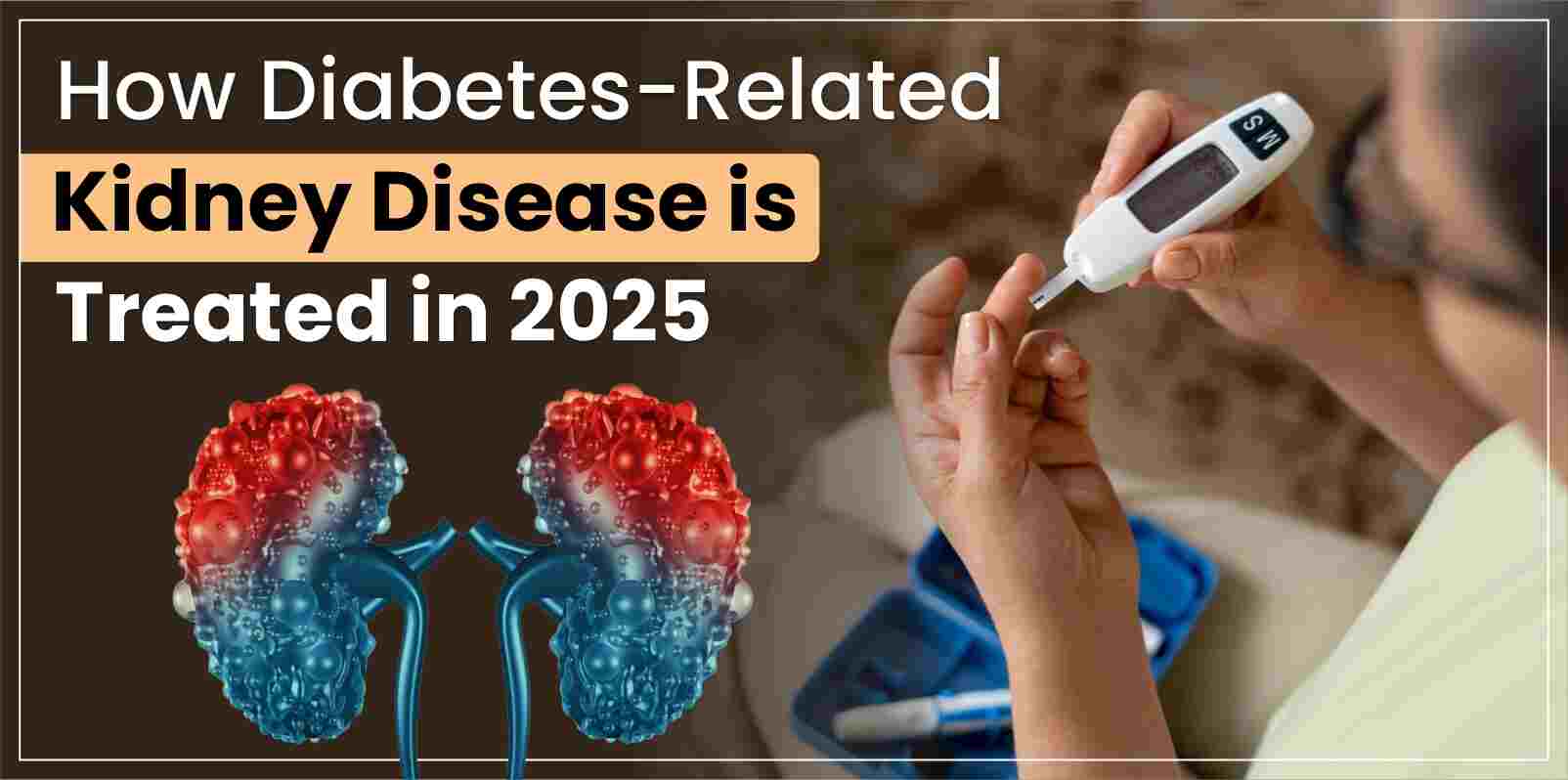
Let’s take a deep breath together. If you or your loved one is dealing with diabetes-related kidney problems, also known as diabetic nephropathy, you are not alone. Millions of people across the world are in the same boat, and guess what? 2025 has brought along a lot of hope. Treatments have improved, awareness is rising, and there are more gentle, holistic options to explore alongside modern care.
So, let’s sit down and talk about diabetic kidney disease treatment in 2025.
In simple terms, when blood sugar values remain high for a long period, it can eventually damage the small blood vessels in your kidneys, resulting in kidney damage due to diabetes. These small blood vessels filter waste from your blood. Once damaged, your kidneys can no longer effectively filter waste, which then leads to chronic kidney disease (CKD).
Now here is the kicker: diabetes is the number one cause of kidney disease in the world. The good news is that with early detection and treatment, we can slow and/or stop the progression of the disease.
Let’s start at the very beginning: getting diagnosed.
By 2025, there will be a massive advance in early detection through AI-based tools and improved lab tests. You wouldn't have to wait until swelling or fatigue crept in. You would be able to get simple tests, such as urine albumin or eGFR (as a reference for kidney disease), and be alerted to damage to your kidneys.
Some clinics are using AI-based predictive models that analyze your blood glucose history, lifestyle, and genetic information to estimate your chance of beginning to have kidney difficulties. When they warn you early, there is time to act.
Once diagnosed, treatment begins with slowing the progression of kidney damage. Let’s walk through the steps:
Possibly the most important step is managing your blood glucose. Sugar control for kidney health is absolutely vital for good renal health. In coming years, continuous glucose monitors (CGMs) will have become smaller, lighter, more accurate, and will directly connect via app to send alerts to warn you before your blood glucose goes too high or too low. Some CGMs even include AI to give you modifications to your meals or insulin doses to help manage your blood glucose levels.
Physicians are now starting to recommend newer classes of diabetes medications, like:
High blood pressure can exacerbate kidney damage. In 2025, personalized BP medications are available based on your kidney health, and home BP monitors are smarter and more connected than ever. Doctors still rely on ACE inhibitors and ARBs, but with better side-effect management.
To protect your blood vessels and kidney function, cholesterol-lowering drugs like statins or newer injectables may be part of your plan.
Nutrition is key. Dieticians in 2025 can now create AI-assisted personalized meal plans tailored to your sugar, protein, and sodium needs. Indian kidney patients, for example, might be guided toward low-salt khichdi, bottle gourd juice, or methi-based dishes instead of high-protein or spicy meals.
Now let’s take a more holistic turn. More and more people in 2025 are turning toward Ayurveda to complement their main treatment. Not as a replacement, but as a gentle partner to modern care.
Ayurvedic doctors often use pulse diagnosis, your unique dosha type (Vata, Pitta, Kapha), and herbal blends to treat the root cause, not just the symptoms. Panchakarma therapies, gentle detox routines, and stress-reducing practices like yoga and pranayama are also widely recommended.
The best part? Many Ayurvedic clinics now work in collaboration with allopathic doctors for a more balanced care journeyWhat Should You Eat?
Hydrating juices like coriander water, barley water, or tulsi-infused water are preferred over sugary beverages.
Chronic illnesses like diabetes and kidney disease can be mentally exhausting. That’s why in 2025, mental wellness is part of every treatment plan.
Your mind and body are deeply connected. A calm mind often leads to better sugar control and, in turn, healthier kidneys.
One of the most exciting parts of 2025 is how technology supports your healing. Imagine:
Healthcare has truly become personalized, proactive, and accessible.
We know it can feel overwhelming. Living with both diabetes and kidney disease isn’t easy. But with early care, balanced and prompt diabetes and kidney failure cure, a pinch of Ayurveda, and lots of self-love, it’s possible to live a full, vibrant life
In 2025, your health journey is no longer a lonely one. There are tools, treatments, and communities ready to support you. Just take that first step, speak with your doctor (and maybe an Ayurvedic expert too), and make your healing journey a kind and empowering one.
Stay hopeful, stay informed, and most importantly, stay kind to yourself.
Ans.
First-line therapy includes tight glucose and blood pressure control, SGLT2 inhibitors, and RAAS blockers like ACE inhibitors or ARBs.
Ans.
They reduce kidney function decline, lower albuminuria, and cut the risk of heart and kidney failure progression.
Ans.
They help control blood sugar, reduce inflammation, support weight loss, and offer renal and cardiovascular protection.
Ans.
Finerenone reduces inflammation and fibrosis, significantly slowing CKD progression in patients with type 2 diabetes.
Ans.
Low-sodium, plant-rich diets, weight control, regular exercise, hydration, and avoiding NSAIDs are strongly advised.
Ans.
When kidney function drops to end-stage (eGFR <15), and symptoms or complications become unmanageable with medications.

Certificate no- AH-2023-0186
JAN 05,2023-JAN 04,2026
"Ayurveda is not just a system of medicine; it's a way of life. Connect with us to embrace a lifestyle that nurtures your body, mind, and soul."
Book Consultation Now